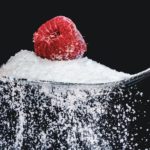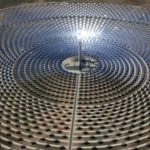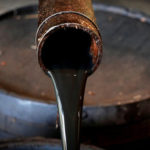What are the dangers of energy drinks?
An energy drink is a type of beverage containing stimulant drugs like caffeine. Their consumption is supposed to provide physical or mental stimulation with the idea of boosting performance or just feeling good. A variety of ingredients are added to these beverages as an ‘energy source. The effects and potential dangers of energy drinks are discussed below.

Energy drinks ingredients
Energy drinks contain stimulants and vitamins. Some of these substances may be in amount more than what the body needs on a daily basis. These drinks should contain a warning of overdosage of these ingredients. When consumed in moderation, these drinks usually do not produce any side effects. The majority of the side effects that occur are short-term. The long-term effects of energy drinks are still under research.
Caffeine: This is the most common ingredient in energy drinks. Though it is also found in coffee, coke, and mountain dew, its concentration is higher in energy drinks. This may range from 70 to 200 mg in a can of energy drink. In most people, a consumption of 200 to 300 mg will produce some symptoms. Caffeine is a nervous system stimulant and increases the level of alertness. It increases heart rate and blood pressure. It may cause dehydration by increasing the urine output. Many people suffer from high levels of caffeine which produces sleeplessness, headache, nausea, and palpitations. Other less common side effects include diarrhea, dizziness, irritability, shrinkage of breasts in females, and allergic reactions.
Caffeine increases the output of adrenal glands. In people with chronic caffeine consumption, adrenal fatigue occurs which manifests with a sensation of tiredness after consumption of caffeinated or energy drinks.
Sugar: Most of these energy drinks are rich in sugar which is usually high fructose corn syrup or cane sugar. These high-calorie sugars are associated with an increased incidence of obesity and dental diseases. There is an increased risk of type 2 diabetes mellitus in these obese patients.
Taurine: Taurine is an amino acid that plays a role in skeletal muscle and heart contraction. Its level in these drinks is very low to cause any side effects.
B vitamins: High levels of niacin can cause facial flushing and liver damage. High levels of B6 or pyridoxine may result in a burning sensation.
Inositol: It may cause diarrhea.
Ginseng: Ginseng is a stimulant. It may cause certain side effects which include low blood pressure, swelling of legs, palpitations, headache, giddiness, sleeplessness, amenorrhea, fever, loss of appetite, generalized itching, jaundice, painful breasts, and abortion.
Glucuronolactone: There are no proven side effects due to the consumption of energy drinks that contain glucuronolactone.
Aspartame: It is added to sugar-free energy drinks. It is regarded as safe.
Ginkgo biloba: It is a herbal extract of ginkgo biloba which is added to energy drinks. It may cause headaches, dizziness, nausea, palpitations, and restlessness. Animal experiments have shown its association with thyroid cancer.
L-carnitine: This ingredient can cause nausea, vomiting, headache, diarrhea, sleeplessness, nasal congestion, and restlessness.
L-theanine: This is an amino acid that is derived from green tea. It also increases the level of alertness as seen with caffeine. A high dose may result in giddiness or a fainting sensation.
Is consuming energy drinks dangerous?
These drinks may be consumed occasionally and in moderation. Excessive drinking should be avoided. One should read any health warning and collect more information about the contents of the drink. Many times it becomes difficult to decide which component in a drink is producing side effects. The final word is ‘drink responsibly, drink occasionally, and don’t make it a habit. Energy drinks should not become your staple diet or a replacement for water.



























